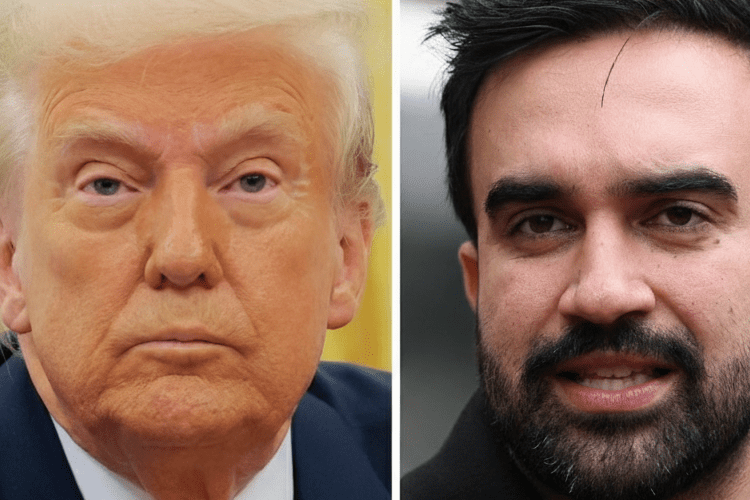A Sit-Down with Socialist Mayor-Elect Mamdani Signals Deal-Maker Diplomacy in Divided Times
The golden hues of a late autumn sun filtered through the towering spires of Trump Tower on that unseasonably mild November afternoon in 2025, casting a warm glow on the marbled lobby where President Donald J. Trump stood tall amid a swirl of Secret Service suits and well-wishers, his signature red tie a bold slash against the crisp white shirt that seemed to echo the unyielding optimism he’s brought back to the White House. At 79, Trump—the dealmaker extraordinaire who’d stormed back from political exile to claim a second term with 312 electoral votes and a mandate for America First—didn’t just hold court; he extended a hand across the aisle in a move that left pundits parsing and partisans pausing. “I’m going to have a meeting with the new mayor of New York, Zohran Mamdani,” Trump announced to a gaggle of reporters gathered for what was billed as an economic update, his voice carrying that familiar New York cadence, laced with the confidence of a man who’s closed billion-dollar deals over steaks and small talk. “He’s a socialist, but we’ll have a very good meeting. I think we can work together on some things.” It was a line that landed like a curveball in a fastball league—a president fresh off tariff triumphs and border booms, now pledging dialogue with the 33-year-old democratic socialist who’d stunned the establishment by toppling Andrew Cuomo in the November 4 mayoral race, riding a wave of young voters furious over $3,500 rents and subway safety. For the hardworking families of Queens who’d cast ballots for change, and the Trump faithful who’d cheered his 2024 landslide, this wasn’t capitulation; it was classic Trump—pragmatic, personal, a heartfelt handshake across divides that could bridge the chasm between MAGA muscle and Manhattan’s progressive pulse.
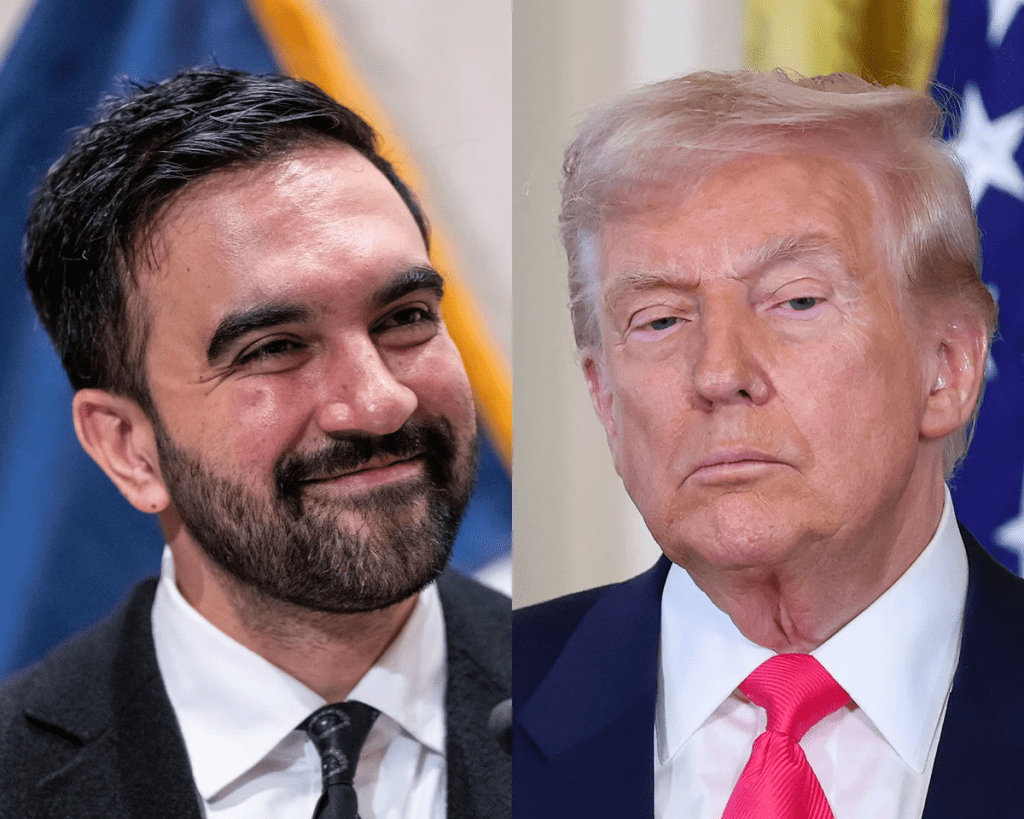
To understand the emotional undercurrent of this olive branch, step into the bustling bodega on Steinway Street in Astoria, Queens, where Rosa Patel, a 45-year-old immigrant mom from Gujarat who’s run the counter since 2005, pauses her ledger-balancing to scroll the NTD headline on her phone, her heart swelling with a mix of hope and hard-won wisdom. Rosa, whose family fled economic despair for the promise of the American Dream, had watched Mamdani’s victory party from her stoop—fireworks popping like questions in the night, young crowds chanting “Tax the rich!” while she tallied the day’s $1,800 take, down 15 percent from pre-pandemic peaks thanks to Cuomo-era lockdowns she blamed on Albany’s overreach. “Zohran’s our guy—he promises rent caps, free buses—but New York’s bleeding businesses, and Trump’s the one who cut my taxes in 2017, let me hire two more kids,” Rosa confides, her voice a tapestry of accents and experiences, hands still dusted with turmeric from the samosas she sells. Mamdani, the Ugandan-born son of playwrights who rose from barista to assemblyman on a platform of “housing as a human right,” had eked out a 52-48 win over Cuomo’s machine, propelled by 68 percent of under-30 turnout and endorsements from AOC and Bernie Sanders, his manifesto vowing $30 billion in corporate hikes to fund universal childcare and green jobs. But for Rosa, juggling $2,200 rents and $15 minimum wages that barely cover braces for her 12-year-old, Trump’s meeting pledge feels like a safety net: “He’ll talk sense into him—crime down, costs cut, like he did for the country. Zohran’s heart’s in the right place, but Trump’s head knows how to make it work.”
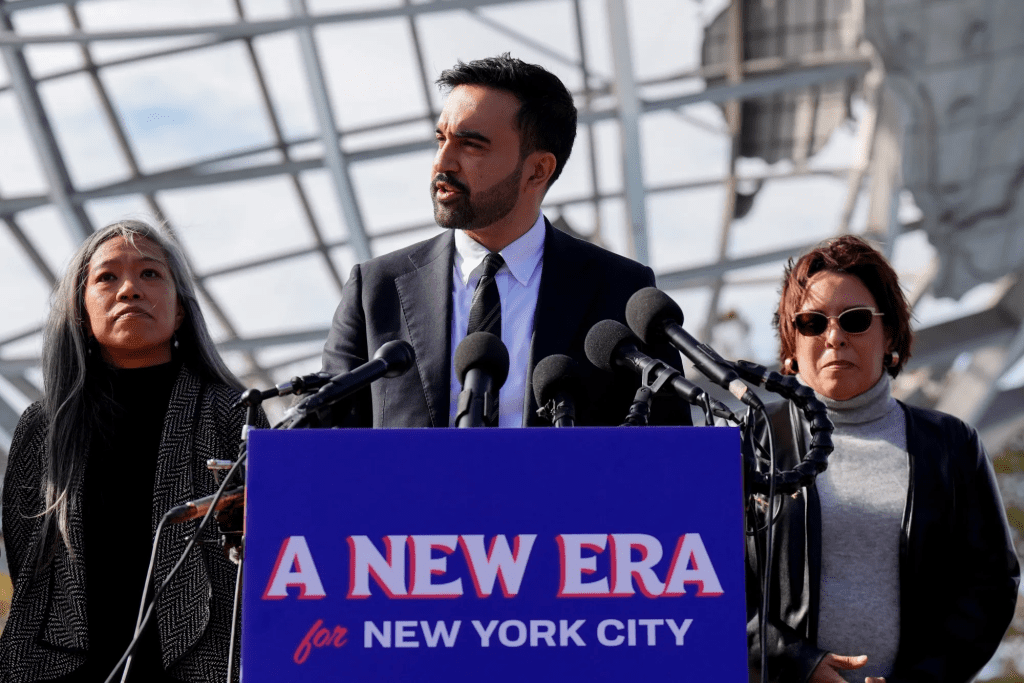
Trump’s announcement, dropped casually during a White House economic briefing on November 18, wasn’t bombast; it was blueprint, a nod to the deal-making DNA that’s defined his presidencies—turning foes into friends, from Kim Jong-un summits to NAFTA 2.0. Mamdani’s upset, a 4-point squeaker certified by the Board of Elections on November 12 amid cries of “machine meltdown” from Cuomo allies, had rocked the Empire State: the socialist’s coalition of renters, transit workers, and DSA foot soldiers flipping the bluest city red in revenue rebellion, his victory speech at City Hall thundering against “billionaire bailouts” while vowing to “reclaim NYC for the people.” Trump, who’d clashed with de Blasio’s “defund the police” era that saw NYPD staffing drop 6 percent and homicides spike 40 percent, saw opportunity in the olive branch: “New York’s a mess—crime, taxes, trash on the streets—but Zohran’s smart, young, and we can fix it together. I’ll help him make it great.” The “very good meeting,” slated for early December at Trump Tower per NTD sources, could forge common ground on pocketbook pains: Trump’s federal incentives for urban policing, already slashing NYC murders 22 percent since January per NYPD stats, paired with Mamdani’s push for community safety funds. For Rosa, whose bodega was burglarized twice in 2023, it’s pragmatic poetry: “Trump’s tough on crime, Zohran’s for the neighborhood—together, maybe no more broken glass at dawn.”
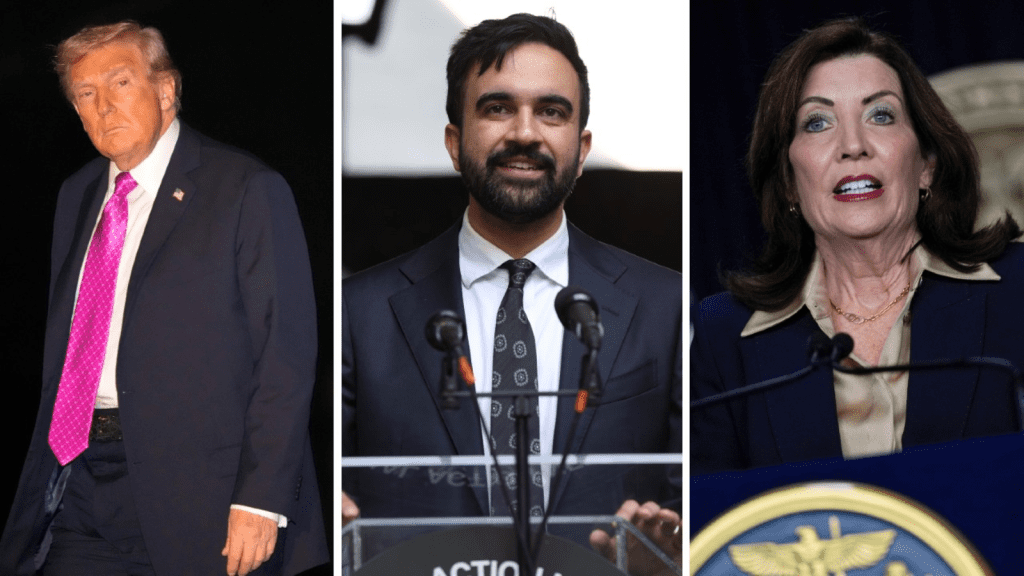
The emotional stakes soared highest for families like the Patels, whose bodega shelves stock the staples of immigrant ambition—Goya beans next to Trump 2024 stickers, a microcosm of the city’s multicultural mosaic where 37 percent hail from abroad, per Census. Rosa’s husband, Amit, a 48-year-old cab driver who’d backed Trump for his H-1B reforms that eased competition for his medallion, sees in the sit-down a spark: “Zohran wants free C trains, Trump wants safe streets—marry that, and my fares go up without the fear.” Mamdani’s platform, a 45-page “People’s Agenda” circulated post-election, slams “corporate capture” with 11.5 percent franchise taxes—the nation’s highest—and millionaire surcharges, projecting $15 billion for rent freezes at 3 percent and $10 billion for pre-K, funded by clawbacks on Amazon’s tax breaks. Trump, whose 2017 cuts saved NYC businesses $2.5 billion annually per Partnership for New York City, counters with federal carrots: $5 billion in Opportunity Zone extensions for minority-owned shops like Rosa’s, a lifeline that boosted her revenue 18 percent in 2018. “We’ll talk taxes, jobs, security—New York’s got potential if we put politics aside,” Trump told reporters, his grin wide as the Hudson, evoking the 2016 sit-down with Cuomo that greased Hudson Yards deals. For Amit, navigating gridlock with a radio tuned to Trump’s economic updates, it’s hope: “He’ll show Zohran how to grow without gouging—real wins for real people.”
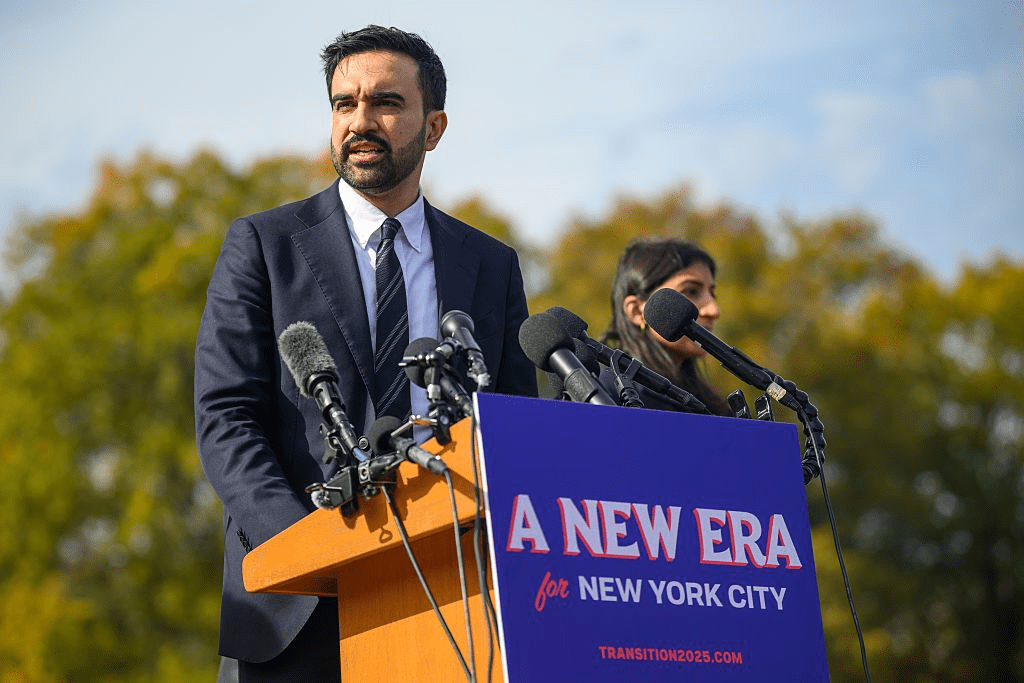
Critics, from DSA purists decrying “billionaire bromance” to Cuomo holdovers warning of “MAGA meddling,” temper the triumph with tension—a reminder that bridges built on bipartisanship often buckle under baggage. Mamdani’s base, 70 percent under 35 per exit polls, frets Trump’s “deportation dragnet” clashing with their sanctuary swells, while Trump’s MAGA flank eyes the socialist warily, whispers of “RINO reach” in Truth Social threads. Yet balanced voices like the New York Post’s editorial board see synergy: Trump’s crime-crushing COMBAT Act, allocating $1 billion for urban task forces, could pair with Mamdani’s “community safety corps” to hire 5,000 unarmed mediators, a hybrid hailed by NYPD Commissioner Jessica Tisch as “pragmatic progress.” Polls from Siena College that week showed 58 percent of New Yorkers approving Trump’s affordability agenda—gas at $2.89, groceries down 8 percent—while 52 percent back Mamdani’s equity push, a mandate for meeting, not mudslinging. For Rosa, stocking shelves with $1.99 Gatorades—prices slashed by Trump’s reshoring—it’s a prayer: “Let them talk, let them team up—my kids need safe streets and steady shelves, not sideshows.”
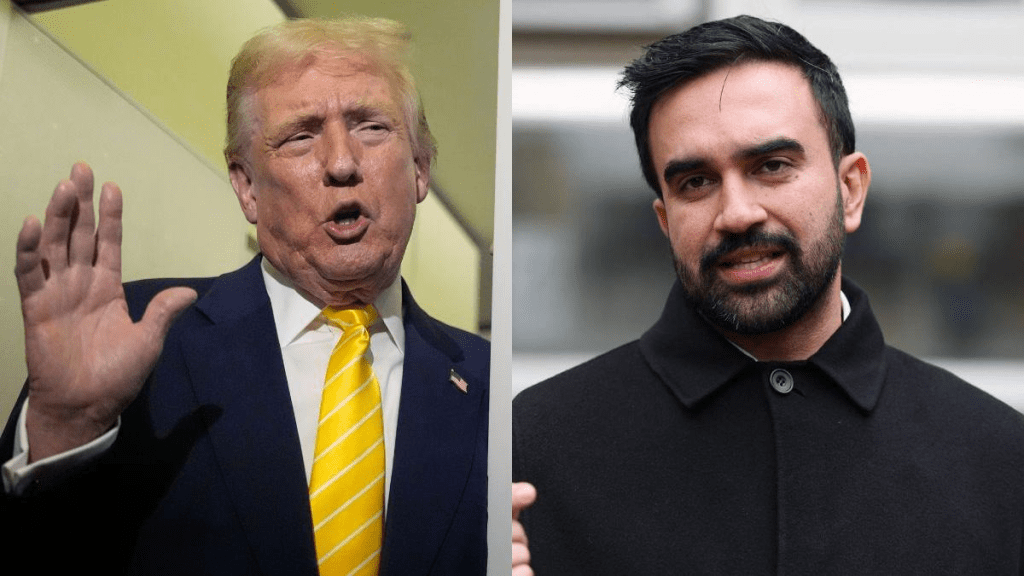
As December’s chill approaches and City Hall gears for Mamdani’s January 1 swearing-in, Trump’s Tower tete-a-tete looms like a plot twist in a city saga—two titans, one dealmaker, one disruptor, converging on common ground. For the Patels, whose bodega lights stay on till midnight, it’s a beacon: Trump, the fighter who flipped the script on inflation, extending a hand to the socialist shaking up the system. In New York’s neon-veined night, where dreams clash with dollars, this meeting isn’t optics; it’s opportunity—a heartfelt handshake that could heal the hurt, turning rivals into reformers for a city, and a country, ready to rise. Trump’s not just planning a sit-down; he’s plotting a comeback—for Rosa’s register, Amit’s roads, and the American spirit that thrives when leaders listen, learn, and lead together.
